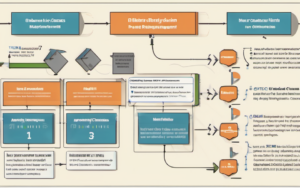The world of finance is undergoing a significant transformation, with decentralized finance (DeFi) emerging as a powerful force. At the heart of this revolution lies Blockchain DeFi, a technology that is reshaping the way we interact with money and financial services. Blockchain provides the secure and transparent infrastructure that empowers DeFi applications, ushering in a new era of financial freedom and accessibility.
The Rise of Decentralized Finance (DeFi)
What is DeFi?
Decentralized finance (DeFi) refers to a system of financial services built on blockchain technology that operates independently of traditional intermediaries like banks and financial institutions. DeFi applications allow users to access a wide range of financial products and services, including lending, borrowing, trading, and insurance, directly through smart contracts.
Benefits of DeFi
DeFi offers numerous advantages over traditional finance, including:
- Transparency: All transactions on the blockchain are publicly auditable, ensuring transparency and accountability.
- Accessibility: DeFi platforms are open to anyone with an internet connection, regardless of their location or credit history.
- Security: Blockchain’s cryptographic security measures protect against fraud and data breaches.
- Efficiency: DeFi applications automate many financial processes, eliminating the need for intermediaries and reducing transaction costs.
Challenges of DeFi
Despite its potential, DeFi faces some challenges:
- Volatility: The price of cryptocurrencies, which are used as collateral in many DeFi applications, can be highly volatile.
- Scalability: Some DeFi platforms struggle to handle large transaction volumes.
- Regulation: The regulatory landscape for DeFi is still evolving.
Blockchain: The Foundation of DeFi
Key Features of Blockchain
Blockchain is a distributed ledger technology that enables secure, transparent, and tamper-proof record-keeping. Its key features include:
- Decentralization: Transactions are recorded on a distributed network of computers, eliminating reliance on a single central authority.
- Immutability: Once a transaction is recorded on the blockchain, it cannot be altered or deleted.
- Transparency: All transactions are publicly auditable, providing transparency and accountability.
How Blockchain Enables DeFi
Blockchain technology is essential for DeFi because it provides the foundation for trustless and transparent financial interactions. Smart contracts, which are self-executing programs stored on the blockchain, automate financial processes, eliminating the need for intermediaries and reducing risks.
Types of Blockchains Used in DeFi
Several blockchain platforms power DeFi applications, including:
- Ethereum: The most popular platform for DeFi, Ethereum’s smart contract capabilities enable a wide range of applications.
- Binance Smart Chain: A fast and cost-effective platform that offers a growing DeFi ecosystem.
- Solana: A high-performance blockchain designed for decentralized applications, including DeFi.
Applications of Blockchain in DeFi
Decentralized Exchanges (DEXs)
DEXs allow users to trade cryptocurrencies directly with each other without the need for a centralized exchange. Blockchain technology ensures the security and transparency of transactions on DEXs.
Lending and Borrowing Platforms
DeFi lending and borrowing platforms enable users to earn interest on their crypto assets or borrow funds using their crypto as collateral. Blockchain smart contracts automate the lending and borrowing process, ensuring transparency and efficiency.
Stablecoins
Stablecoins are cryptocurrencies pegged to a stable asset, such as the US dollar, to reduce price volatility. Blockchain technology enables the creation and management of stablecoins, providing a more stable alternative to volatile cryptocurrencies in DeFi applications.
Decentralized Insurance
Decentralized insurance platforms allow users to buy and sell insurance policies using cryptocurrencies. Blockchain technology ensures the transparency and fairness of insurance payouts.
The Future of Blockchain and DeFi
Growth Potential
The DeFi sector is expected to grow significantly in the coming years. As blockchain technology matures and regulatory clarity increases, more financial services will be integrated into the DeFi ecosystem, expanding its reach and impact.
Regulation and Adoption
The regulatory landscape for DeFi is still evolving, but regulators are increasingly focusing on the sector. Clear regulations can help to foster innovation while mitigating risks, promoting wider adoption.
Impact on Traditional Finance
DeFi has the potential to disrupt traditional finance by providing more accessible, efficient, and transparent financial services. As DeFi adoption grows, it will likely lead to increased competition and innovation in the financial industry.
The future of finance is decentralized, and Blockchain DeFi will play a central role in shaping this future. By leveraging the power of blockchain technology, DeFi applications are creating a more inclusive, secure, and efficient financial system for everyone. As the sector continues to evolve, we can expect to see even more innovative applications emerge, transforming the way we interact with money and financial services.




